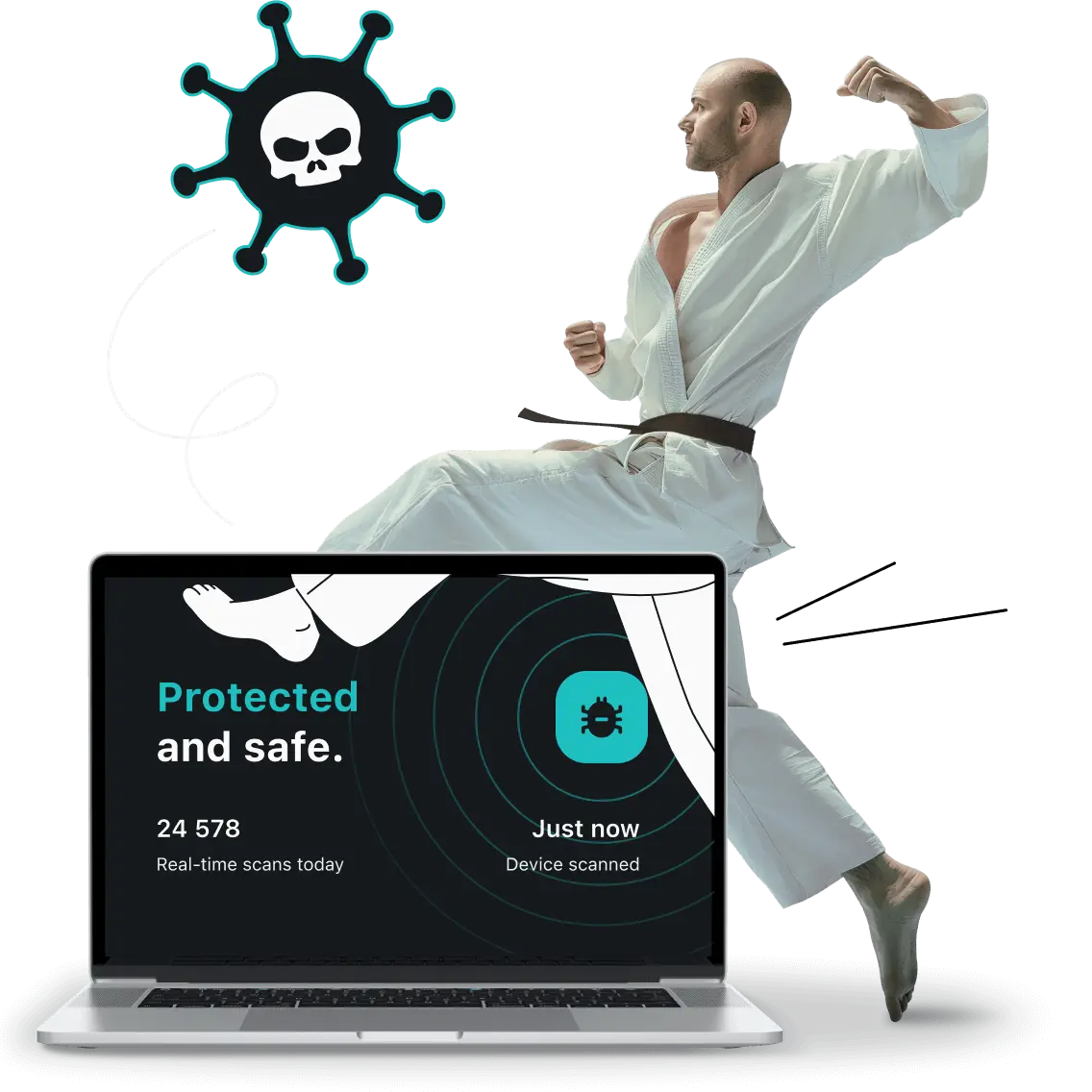Secure your devices with Antivirus
Experience protection against sneaky viruses and malware that doesn't interrupt your flow.

Unlock the full power of device protection
Experience top-notch security with our Antivirus software. Support for up to 5 devices, regular updates, and advanced security features provide a powerful shield from online threats.



Features behind the scenes

Lightweight security

Safety from new viruses

24/7 malware protection

 6
6 5.5
5.5 6
6Antivirus comes in the Surfshark One bundle
Surfshark One — a cybersecurity bundle for all-over protection. Surf the web without tracking, secure your devices from threats, & guard your accounts’ security.
Secure your connection
Enjoy your online adventures with 24/7 privacy protection by the award-winning Surfshark VPN


Keep your personal data private
Create a brand new online identity and a proxy email with Alternative ID. Use it to shield your info, avoid data leaks and a spam-filled inbox.
Protect your devices
Surfshark Antivirus — powerful device protection that secures everything, from your webcam to your files. Experience 24/7 security that you can set and forget.

Get data leak alerts
Alert notifies you the moment your email addresses, IDs, credit cards, or other personal data gets leaked online.




Frequently asked questions
What is antivirus?
Can I get Surfshark Antivirus as a standalone?
What devices can I use Surfshark Antivirus on?
Important: Surfshark Antivirus is not compatible with Windows ARM and Android devices running on other than 64-bit architecture.
How does Surfshark compare to a free antivirus?
Is Surfshark Antivirus free with a VPN?
- VPN that changes your IP address so your location becomes invisible.
- Antivirus that scans programs whenever you download, install, or use them.
- Alert that notifies you if your email, credit card, or ID is leaked in a breach.
- Search that gives organic browsing results without ads or trackers.
- Alternative ID that creates a new identity & email for online registrations.
Do I need antivirus protection with a VPN?
Yes. Comparing VPN vs. antivirus is comparing apples and oranges. A VPN encrypts your data and protects your online privacy, while antivirus offers malware protection and secures your devices.
Sometimes, a VPN can prevent you from getting viruses with features like CleanWeb. However, a VPN can't do much once you have the virus inside your device. That's why it's best to run a VPN together with an antivirus!
Is there 100% free antivirus software?
What is the best antivirus software?
The best antivirus software depends on your specific needs and preferences. There are many antivirus apps to choose from. So before you download antivirus software, make sure to check the operating system you use, your budget, and the features you need.
If you're looking for an intuitive antivirus program with premium features that won't slow down your device — try Surfshark.
